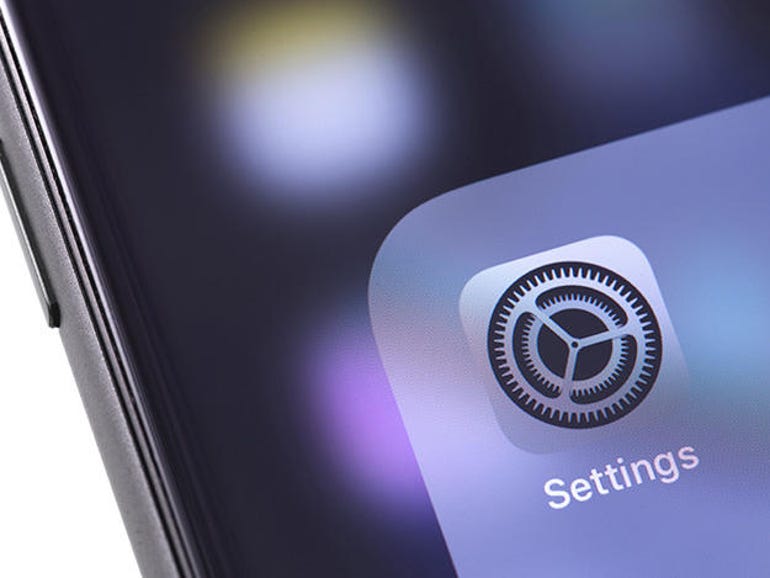
I've been watching iOS releases closely since, well, the operating system was called iPhone OS, and iOS 14 looks like it's the worst release to date.
Why is iOS 14 so bad?
First, let's wind back a bit. iOS 14 released in September 2020, a release that followed months of developer and public beta testing. Right out of the gate, iOS 14 had its fair share of bugs. There were performance issues, battery problems, user interface lags, keyboard stutters, crashes, glitches with apps, and a bunch of Wi-Fi and Bluetooth connectivity troubles.
iPadOS was also affected, seeing similar issues and more, including weird charging problems.
Must read: Dumping Google Chrome: Three things you need to do if you're serious about it
Over the past few months, we've seen a whole raft of releases -- 11 for those keeping score -- and every release has brought with it both fixes and new bugs.
At the top of that list are the ever-present battery drain bugs. Early releases had battery drain bugs and the latest iOS 14.6 release has battery drain bugs. There's always a short-term increase in power consumption following an update as a result of the iPhone carrying out essential tasks (and I have no doubt some people are misidentifying these short periods as bugs). Still, there's little doubt that increased battery consumption has been an on-going problem for iOS 14.
Then there are the performance issues.
iOS 14.5.1 contained a bug that particularly affected the iPhone 11 line, throttling performance so bad that they were outperformed by the now aging iPhone XR. This one was fixed with the release of iOS 14.6.
Then there's that notifications bug.
A bug that's been around since iOS 14 first began hitting iPhones, and a bug so frustrating and hard to fix that it's making people switch to Android.
That bug remains unfixed.
This is the most persistent iOS bug I've seen.
So, what's going on?
Over the months, I've had a chance to speak to several people at Apple. Some cite the aggressive yearly update cycle combined with updates throughout the year. Others say that there's a continuous push to add more features, while one said that the size of the ecosystem and the support for too many older models is, at least, part of what's causing problems.
I'd say that there are three things at play here.
First, Apple is pushing iOS out at an aggressive pace. There's a yearly update cycle that not only has to support a growing base of devices, but also support the latest iPhone release.
Within that yearly cycle, there are smaller cycles where Apple is fixing bugs, patching security vulnerabilities, and adding new feature down the line.
That's a lot to manage. And in that sort of environment, expect non-security bugs to be triaged, and the biggest, most widespread getting the most attention.
Then there's the issue of the size of the ecosystem.
With more than a billion active iPhones, Apple is supporting an enormous ecosystem. And it's also an aging ecosystem, given that iOS 14 will run on the iPhone 6s, a line first released September 2015. It's likely that many of these older devices will have worn out batteries and possibly have accumulated damage and other wear and tear, issues that could be mistaken for bugs.
But since newer iPhones are also suffering from bugs and problems, we can't just blame older hardware.
Also: Maybe the Android way of updating smartphones is better than the iOS model after all
Over a billion devices in active service means that there's a good billion pairs of eyes on iOS, and countless different apps, accessories, home networks, and cellular networks at play. The more people that use something, the more bugs that are going to be shaken out.
Add on top of that the fact that people have a high expectation when it comes to how they want their smartphone to perform, doubly so when it comes to a flagship line like the iPhone, and people are going to jump on bugs.
It still perplexes me how something like the notifications bug can continue. The thread on Apple's own support forum is huge, people are calling tech support and getting nowhere, and iPhone owners are resorting to buying Android handsets to fix the problem. There's clearly a bug here, and sure, it's hard to get a clear idea of how many people are affected, but the lack of a fix is very disturbing.
With WWDC just around the corner, all eyes will now shift to iOS 15, and the cycle will begin all over again.
The Link LonkJune 02, 2021 at 10:36PM
https://ift.tt/2SS3Dxe
Why is iOS 14 so bad? - ZDNet
https://ift.tt/2ZaIe2Q
iOS
:no_upscale()/cdn.vox-cdn.com/uploads/chorus_asset/file/22686894/backboneonexbox.jpg)
No comments:
Post a Comment